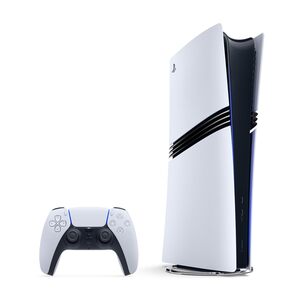Thanks for the reply! Very good points all around. As far as going into next generation, you can argue there isn't a whole lot Sony or Nintendo need to change. Nintendo could make more on 30% cuts of third party games and micro transactions with a unit that has a good amount of internal storage, rather than relying on SD cards. Sony could try to improve game streaming to a point where a backbone style device at an attractive price could get "portable first" players into a subscription service. But those are probably not a priority for each respective company.
Microsoft is in a weird position, but at the same time, they have a lot of options. Going head to head with PlayStation on specs / pricing didn't work this time. Maybe recent sales will swing things in the other direction, but the Series S has outsold the Series X up to now. That is a digital only system with 512GB of internal storage, and price sensitive customers seem less likely to me to shell out on storage expansion, so either they know those people are less likely to buy as much software as Series X owners, or they're counting on a lot of "fridge cleaning", especially among Game Pass subscribers on that unit.
I'd like to see Microsoft target a PS4-style release. $399 on a unit that runs the next generation of games reasonably well, but leave the PC segment for competing with (you would guess) more expensive PlayStation hardware for the tech enthusiast crowd. Buying Valve and keeping all the revenue on PC game sales, and 30% of everyone else's sales and micro transactions, has to be a consideration at some point. I just don't see a logical situation where they would compete hdad to head again on specs/price, particularly when PC versions of every game they publish means the days of "Xbox exclusive game" are behind us.








